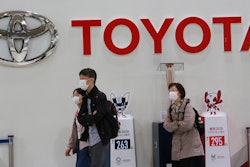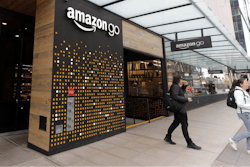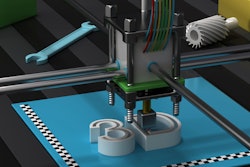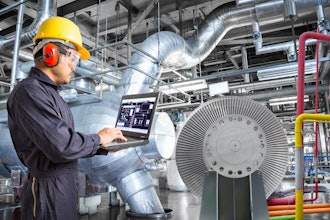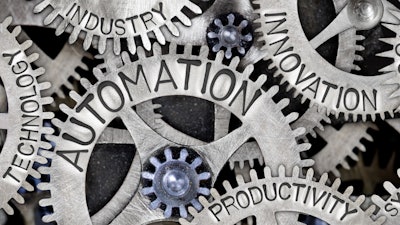
The manufacturing industry and industrial organizations are facing more pressure than ever before to perform, whether through maximizing throughput, optimizing efficiency, reducing costs or improving uptime. These goals can vary based on the industry, and the pressure comes from all directions – business leaders striving to boost profits in a volatile market, the general public and key shareholders putting the spotlight on sustainability and an evolving workforce.
Good performance is no longer tied to just one aspect of business – but how to adjust for that?
AI, which is already playing a key role in achieving these seemingly hard-to-reach industrial business goals, just might be the answer. Deploying Industrial AI technology helps to unlock more value from data, uncovering new and better business processes that lead to significant and positive business outcomes across key areas such as profitability, sustainability and safety.
Profitability + Sustainability Go Hand-In-Hand
Amid a challenging year that has created much uncertainty in the manufacturing world, profitability is key to resiliency. However, it is impossible to control market and demand swings. That is why asset optimization is one of the best ways to capture more profitability in absence of market control. Industrial AI is pivotal to asset optimization as it enables data science teams to evaluate thousands of different scenarios to uncover the optimal processes for driving specific business goals.
One of the best ways to optimize assets is to make sure they do not break. Predictive and prescriptive maintenance in manufacturing relies heavily on Industrial AI to uncover not only asset malfunctions, but also breakdowns in the processes that impact those assets well before they happen, ultimately helping plants avoid unplanned downtime.
When combined with historical process data, Industrial AI can identify irregular patterns in asset function, not only sounding the alarm for a pending failure but also prescribing actions to address it. Plant downtime is one of the easiest ways to lose profits, with some large manufacturing companies standing to lose hundreds of thousands of dollars for every hour or day that a plant is not operating. The insight that Industrial AI can provide into the health of assets and processes gives manufacturers more assurance in reliability and curtails maintenance issues that could impact larger operations.
While AI is pivotal to asset optimization, it is just as essential for process optimization. Leveraging AI in process modeling is the key to unlocking more value from the data being aggregated by these organizations. Industrial AI, when combined with data science and domain expertise, can provide manufacturers with a multitude of models that explore a variety of plant processes, giving plant operators more insight into which processes will be most beneficial to their business goals and which will not.
The other fascinating aspect of AI-powered modeling is that it serves more than just profitability goals – it helps plants to create a greener environment. While it may seem like sustainability and profitability goals would be at war with one another in a plant setting, Industrial AI can actually support both goals effectively.
By leveraging Industrial AI-powered process models, manufacturing plants can tackle both profitability and sustainability simultaneously. For example, if a company wants to reduce energy consumption and carbon emissions, advanced AI-driven modeling can pinpoint different process designs for curbing energy use while also speeding up efficiency.
Finding the right balance becomes possible with visibility into different scenarios that Industrial AI-powered modeling provides. That modeling allows organizations to see a multitude of options in front of them at all times, ensuring more strategic and faster decision-making across all business goals.
Preparing for A Changing Workforce
Beyond helping to meet profitability and sustainability goals, Industrial AI helps to improve workforce goals, too. It enables improved knowledge automation to better support a changing workforce. Intelligence-rich applications and automated knowledge-sharing enable workers to make decisions without always having the domain expertise or expert background themselves. This is essentially democratizing technology for a broader range of talent across the plant.
The manufacturing world is facing a talent crunch, with a stream of workers retiring every year and too few new personnel entering the industrial workforce to replace them. At the same time, the fresh talent that is coming onboard boast a diverse set of skills and different expectations of how to work with technology in the plant environment. These two realities underscore the value of Industrial AI in helping to make that transition seamless and reduce expertise barriers, closing the growing skills gap.
AI in manufacturing does not have a singular end goal – it covers so much ground and can touch every business decision if leveraged in the right way. Ultimately, Industrial AI acts as a true partner to manufacturing companies trying to thrive amid a most challenging year and environment – no matter their business objectives.
Frederic Bastien is the Vice-President of AIoT Technology & Product Management at AspenTech.




